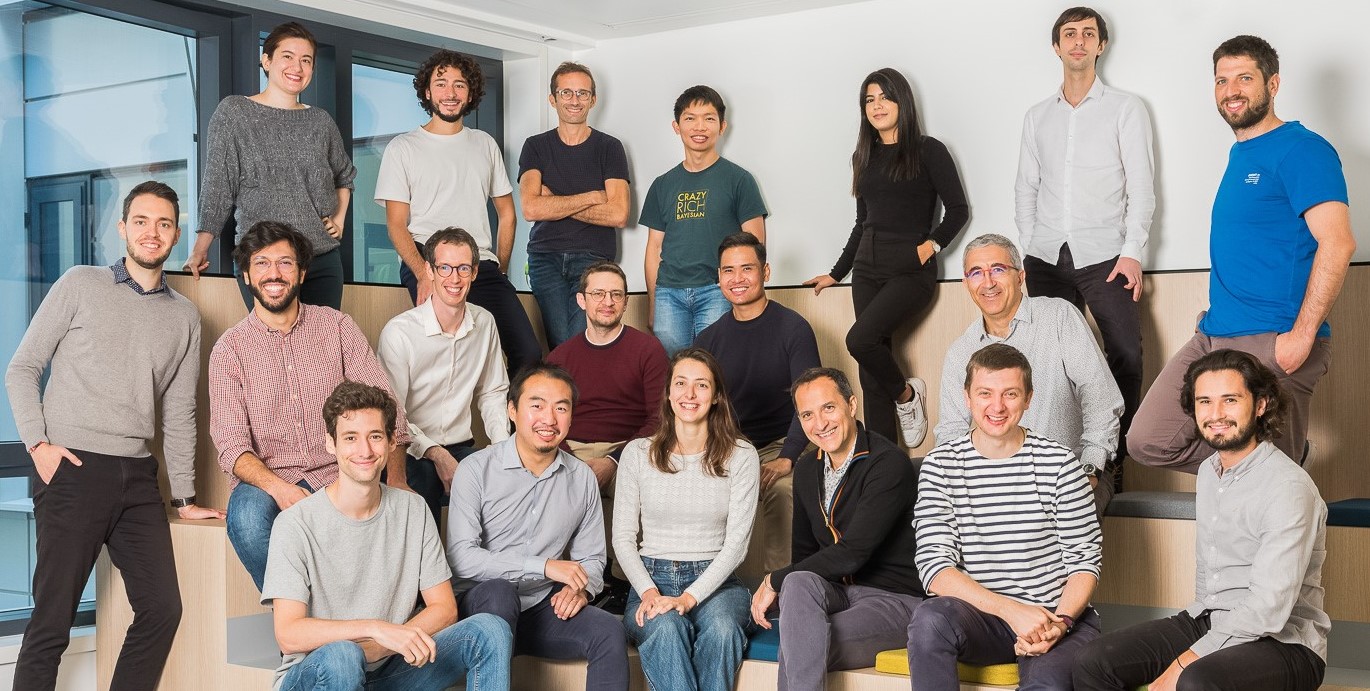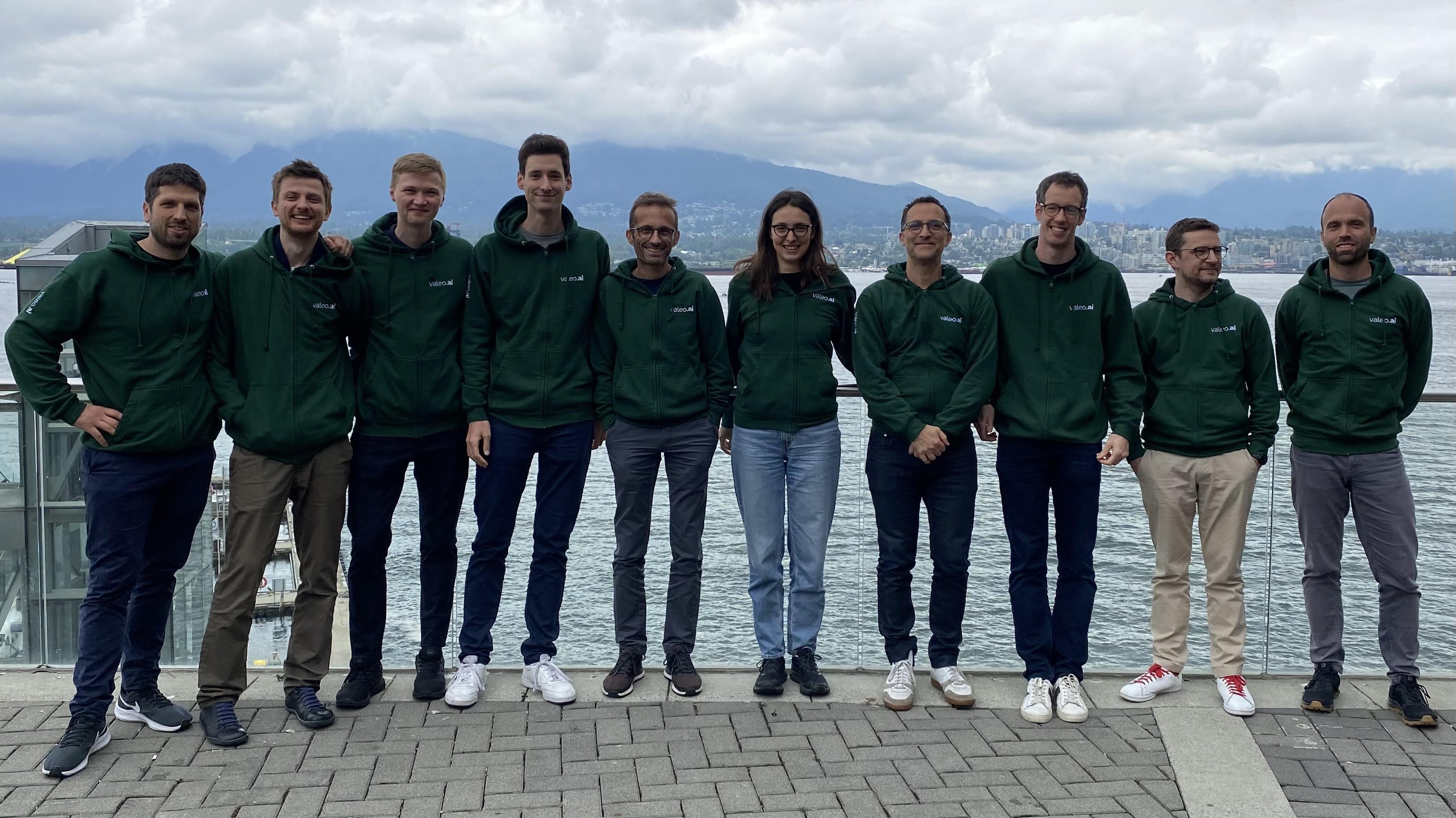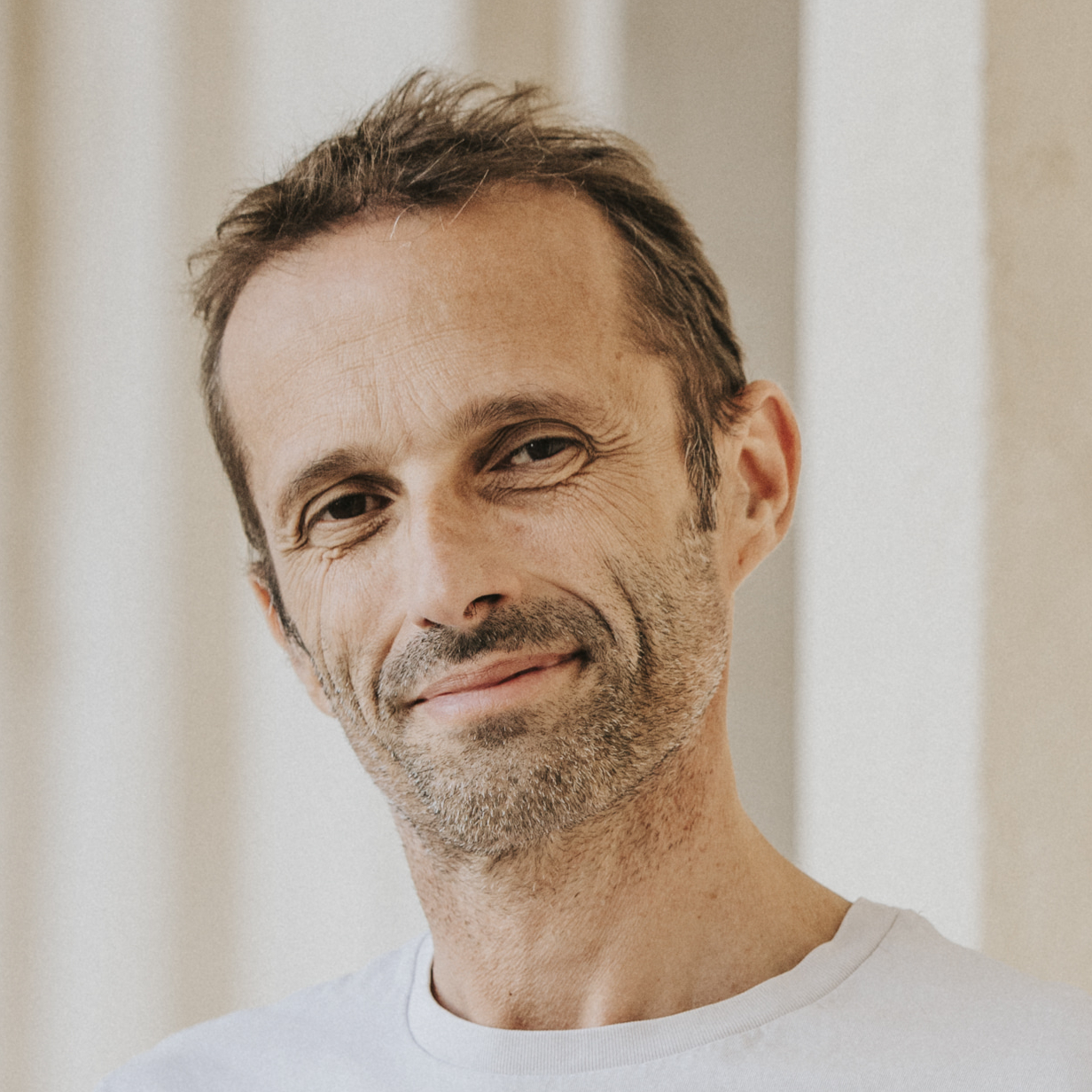valeo.ai


An international team based in Paris, which conducts AI research for Valeo automotive applications, in collaboraton with world-class academics. Our main research is on reliable and sustainable automotive AI. See our papers, projects, codes, posts and tweets.
Team
Florent Bartoccioni, research engineer | page
Victor Besnier, research scientist | scholar
Alexandre Boulch, research scientist | page | scholar| github | twitter
Andrei Bursuc, senior scientist | page | scholar | github | twitter
Laura Calem, PhD student w/ CNAM | github | twitter
Loïck Chambon, PhD student w/ Sorbonne U. | linkedin
Mickaël Chen, research scientist | page | scholar | github
Matthieu Cord, principal scientist (and prof. at Sorbonne U.) | page | scholar | twitter
Spyros Gidaris, research scientist | scholar | github
David Hurych, research scientist | scholar
Victor Letzelter, PhD student w/ Telecom Paris | linkedin
Renaud Marlet, principal scientist (and researcher at ENPC) | page | scholar
Björn Michele, PhD student w/ U. Bretagne Sud) | scholar
Patrick Pérez, scientific director (and Valeo VP of AI) | page | scholar
Cédric Rommel, research scientist | page | scholar | twitter
Gilles Puy, research scientist | page | scholar
Nermin Samet, research scientist | page | scholar
Corentin Sautier, PhD student w/ ENPC | linkedin
Oriane Siméoni, research scientist | page | scholar | github
Eduardo Valle, senior scientist | scholar
Antonín Vobecký, PhD student w/ CTU | page | scholar | github
Tuan-Hung Vu, research scientist | page | scholar | github | twitter
Yihong Xu, research scientist | scholar
Eloi Zablocki, research scientist | scholar | twitter
Léon Zheng, PhD student w/ ENS Lyon | page
Human Resource Partner: Marine Michaud
Collaborative projects manager: Serkan Odabas
Assistant: Ouafa Bakrine
Location: 100 rue de Courcelles, Paris
Academic partners
CTU, Prague (Josef Sivic)
EPFL, Lausanne (Alexandre Alahi)
ENPC, Paris (Vincent Lepetit)
ENS & Inria, Lyon (Rémi Gribonval)
Inria Paris (Raoul de Charette)
Sorbonne, Paris (Matthieu Cord, Nicolas Thome)
Télécom, Paris (Gaël Richard, Slim Essid, Mathieu Fontaine)
UBS, Vannes (Nicolas Courty)
Lastest News
[09/2023] team Valeo.ai participates in mass to ICCV in Paris, from interns to senior researchers, spot our dark green hoodies and engage with us!
[09/2023] paper Four papers accepted at NeurIPS’23
[07/2023] paper code Five papers accepted at ICCV’23, one with code so far (WaffleIron)
[07/2023] service Renaud Marlet and Oriane Siméoni join ICCV’23 organization as Logistic Chair (Patrick Pérez serving as Industrial Relation co-chair)
[06/2023] pres Oriane Siméoni runs “Object localization for free: Going beyond self-supervised learning” CVPR’23 Tutorial
[06/2023] pres Nine Valeo.ai researchers participate to CVPR’23
[06/2023] pres Patrick Pérez delivers keynote at Vision4AllSeasons CVPR’23 workshop
[06/2023] team Florent Bartoccioni defends his PhD at Inria-Grenoble and joins Valeo.ai as research engineer
[05/2023] service Andrei Bursuc, Gilles Puy and Spyros Gidaris are Outstanding Reviewers at CVPR’23 [04/2023] pres “BRAVO: Robustness and Reliability of Autonomous Vehicles in the Open-world” accepted as ICCV’23 workshop
[04/2023] pres “Uncertainty Quantification for Computer Vision” accepted as ICCV’23 wokrshop
[04/2023] pres “The Many Faces of Reliability of Deep Learning for Real-World Deployment” accepted as ICCV’23 tutorial
[03/2023] team Valeo.ai celebrates its 5th anniversary!
[02/2023] paper code Six papers accepted at CVPR’23, four with codes (FOUND, ALSO, Range-ViT, OCTET)
[01/2023] team Eduardo Valle starts as senior scientist
[12/2022] team Cédric Rommel starts as research scientist
[11/2022] team Huy Van Vo defends his PhD at ENS and joins FAIR at META
[10/2022] collab Astra-Vision, part of Inria-Valeo joint team Astra, starts research on perception
[10/2022] team Yihong Xu starts as research scientist
[10/2022] paper code data Six papers presented at ECCV’22, five with codes (BiB, D&S, STEEX, AttMask, LDU) and one with dataset (HULC)
[10/2022] pres Andrei Bursuc and Spyros Gidaris run Self-supervision on wheels: Advances in self-supervised learning from autonomous driving data ECCV’22 Tutorial
[09/2022] challenge ObsNet ranks first on SegmentMeIfYouCan benchmark (Anomaly Track) among methods with no OoD training data
Main research themes
Multi-sensor scene understanding and forecasting — Driving monitoring and automatization relies first on a variety of sensors (cameras, radars, laser scanners) that deliver complementary information on the surroundings of a vehicle and on its cabin. Exploiting at best the outputs of each of these sensors at any instant is fundamental to understand the complex environment of the vehicle and to anticipate its evolution in the next seconds. To this end, we explore various machine learning approaches where sensors are considered either in isolation or collectively.
Data/annotation-efficient learning — Collecting diverse enough real data, and annotating it precisely, is complex, costly, time-consuming and doomed insufficient for complex open-world applications. To reduce dramatically these needs, we explore various alternatives to full supervision, in particular for perception tasks: self-supervised representation learning for images and point clouds, visual object detection with no or weak supervision only, unsupervised domain adaptation for semantic segmentation of images and point clouds, for instance. We also investigate training with fully-synthetic or generatively-augmented data.
Dependable models — When the unexpected happens, when the weather badly degrades, when a sensor gets blocked, embedded safety-critical models should continue working or, at least, diagnose the situation to react accordingly, e.g., by calling an alternative system or human oversight. With this in mind, we investigate ways to assess and improve the robustness of neural nets to perturbations, corner cases and various distribution shifts. Making their inner workings more interpretable, by design or in a post-hoc way, is also an important and challenging venue that we explore towards more trust-worthy models.
Code and data
POCO Point Convolution for Surface Reconstruction (CVPR’22)
SFRIK Self-supervised learning with rotation-invariant kernels (ICLR’23)
FOUND Observing the background to discover objects (CVPR’23)
ALSO Automotive Lidar self-supervision by occupancy estimation (CVPR’23)
RangeViT ViT for 3D Semantic Segmentation in autonomous driving (CVPR’23)
OCTET Object-aware counterfactual explanations (CVPR’23)
WaffleIron Automotive point cloud semantic segmentation (ICCV’23)
LidarTouch Monocular metric depth estimation with a few-beam LiDAR (CVIU 2022)
DenseMTL Cross-task attention mechanism for dense multi-task learning (WACV’23)
LaRa Latents and rays for multi-camera BEV semantic segmentation (CoRL’22)
BiB Active learning strategies for weakly-supervised object detection (ECCV’22)
D&S Unsupervised semantic segmentation of urban scenes via cross-modal distillation (ECCV’22)
STEEX Steering Counterfactual Explanations with Semantics (ECCV’22)
CAB Raising Context Awareness in Motion Forecasting (workshop CVPR’22)
MuHDi Multi-head distillation for continual unsupervised domain adaptation in semantic segmentation (CLVision’22)
DIVA Diverse Probabilistic Trajectory Forecasting with Admissibility Constraints (ICPR 2022)
SLidR Image-to-Lidar self-supervised distillation for autonomous driving data (CVPR’22)
RADIal (dataset) HR radar dataset (+ camera & lidar) for vehicle and free space detection (CVPR’22)
LOST Object localization with self-supervised transformers (BMVC’21)
MTAF Multi-Target Adversarial Frameworks for domain adaptation (ICCV’21)
PCAM Product of Cross-Attention Matrices for rigid registration of point clouds (ICCV’21)
SP4ASC Separable convolutions for acoustic scene classification in DCASE’21 Challenge
MVRSS Multi-view radar semantic segmentation (ICCV’21)
ObsNet Out-Of-Distribution detection by learning from local adversarial attacks in semantic segmentation (ICCV’21)
Semantic Palette Guiding scene generation with class proportions (CVPR’21)
Attributes with Fields Detecting 32 pedestrian attributes with composite fields (T-ITS)
OBoW Online BoW generation for unsupervised representation learning (CVPR’21)
DummyNet Artificial Dummies for Urban Dataset Augmentation (AAAI’21)
CARRADA (dataset) Camera and Automotive Radar with Range-Angle-Doppler Annotations dataset (ICPR’20)
ESL Entropy-guided Self-supervised Learning for Domain Adaptation in Semantic Segmentation (workshop CVPR’20)
FLOT Scene flow on point clouds guided by optimal transport (ECCV’20)
AdamSRT Adam exploiting BN-induced pherical invariance of CNN (arXiv 2020)
LightConvPoint Convolution for points (ACCV’20)
xMUDA Cross-modal UDA for 3D semantic segmentation (CVPR’20)
LearningByCheating End-to-End driving using implicit affordances (CVPR’20)
rOSD Unsupervised object discovery at scale (ECCV’20)
ConvPoint Convolutions for unstructured point clouds (Computer \& Graphics 2020)
BEEF Driving behavior explanation with multi-level fusion (workshop NeurIPS’20 and Pattern Recognition’22)
Woodscape Driving fisheye multi-task dataset (ICCV’19)
ZS3 Zero-Shot Semantic Segmentation (NeurIPS’19)
BF3S Boosting few-shot visual learning with self-supervision (ICCV’19)
ConfidNet Addressing failure prediction by learning model confidence (NeurIPS’19)
Rainbow-IQN Ape-X effective RL combination for Atari games
DADA Depth-aware Domain Adaptation in Semantic Segmentation (ICCV’19)
AdvEnt Adversarial Entropy minimization for domain adaptation in semantic segmentation (CVPR’19)
OSD Unsupervised object discovery as optimization (CVPR’19)
Previous news
- 09/2022: Patrick Pérez contributes to the Czech-French workshop on AI in Prague.
- 08/2022: Our survey on the Explainability of vision-based autonomous driving systems appears in IJCV.
- 08/2022: Valeo.ai contributes to the Weakly Supervised Computer Vision workshop at the Deep Learning Indaba in Tunis.
- 08/2022: Valeo.ai is part of Astra, the new Inria-Valeo join team on autonomous driving.
- 06/2022: Valeo.ai presents 4 papers (25% acceptance ratio) and 3 worshop papers at CVPR’22, some with codes (SliDR, POCO], MuHDI), one with dat (RADIal).
- 05/2022: Patrick Pérez delivers a keynote at Autonomy 2.0 ICRA workshop.
- 05/2022: Oriane Siméoni and Renaud Marlet are Outstanding Reviewers at CVPR’22.
- 04/2022: Antoine Saporta defends his PhD at Sorbonne University.
- 03/2022: Geoffrey Bouquot, Valeo CTO, highlights several team’s projects on augmented perception of autonomous vehicles at Nvidia GTC.
- 03/2022: Matthieu Cord delivers a keynote at the Explainable AV Workshop of the European Commission Joint Research Centre.
- 03/2022: Work on forecasting multipe, diverse and feasible, trajectories, accepted at ICPR.
- 03/2022: Arthur Ouaknine and Charles Corbière defend their PhD at Telecom and CNAM respectively.
- 03/2022: Paper on Cross-modal Learning for Domain Adaptation in 3D Semantic Segmentation accpeted in PAMI.
- 10/2021: The team presents 6 papers with codes at ICCV (post).
- 10/2021: Three papers accepted at 3DV.
- 09/2021: One paper accepted at NeurIPS.
- 09/2021: Preprint on object localization with self-supervised transformers and no Labels, with code.
- 09/2021: The team moves in the beautiful new Valeo headquarter, 100 rue de Courcelles, in Paris.
- 08/2021: Paper on Handling new target classes in semantic segmentation with domain adaptation accpeted in CVIU.
- 08/2021: Paper on Detecting 32 pedestrian attributes for autonomous vehicles with code accepted in T-IST.
- 08/2021: Code for our ICCV’21 paper “Multi-view radar semantic segmentation”.
- 08/2021: Code for our ICCV’21 paper “Triggering Failures: Out-Of-Distribution detection by learning from local adversarial attacks in Semantic Segmentation”.
- 08/2021 Renaud Marlet among the Outstanding Reviewers of ICCV’21.
- 07/2021: Matthieu Cord on self-supervised learning in French newspaper Le Monde.
- 07/2021: Six papers accepted at ICCV’21 (25.9% acceptance rate).
- 07/2021: Code for our CVPR’21 paper “Semantic Palette: Guiding scene generation with class proportions”.
- 06/2021: Spyros Gidaris to serve as Area Chair for CVPR 2022.
- 06/2021: Renaud Marlet to serve as Meta-reviewer for BMVC 2021.
- 06/2021: Valeo.ai participates to CVPR’21 presenting three papers, co-organizing a tutorial on self-supervised learning and the OmniCV workshop and delivering keynotes at SAIAD and Vision4AllSeason workshops.
- 06/2021: Matthieu Cord serves as Area Chair for NeurIPS 2021.
- 05/2021 Alexandre Boulch, Andrei Bursuc, Matthieu Cord, Renaud Marlet, Spyros Gidaris and Tuan-Hung Vu among the Outstanding Reviewers of CVPR’21.
- 05/2021: Paper on Confidence estimation via auxiliary models accepted in IEEE T-PAMI.
- 04/2021: Woodscape Challenge on fisheye semantic scene segmentation in conjunctin with CVPR’21 OmniCV workshop.
- 03/2021: Marin Toromanoff defends his PhD at MinesParis, committee: O. Pietquin, Th. Chateau, P.-Y. Oudeyer, R. Munos, Ch. Gagne, F. Moutarde, X. Perrotton.
- 03/2021: Three papers accepted at CVPR’21 (23.7% acceptance rate).
- 02/2021: Matthieu Cord delivers keynote at Machine Learning Prague.
- 02/2021: Blog post on the explainability of neural driving models.
- 01/2021: Preprint on Cross-modal learning for domain adaptation in 3D semantic segmentation.
- 01/2021: Preprint on the Explainability of vision-based autonomous driving systems.
- 12/2020: Preprint on Online BoW prediction for unsupervised representation learning with code.
- 12/2020: Valeo participates with keynote and posters to ML4AD virtual workshop at NeurIPS’20.
- 12/2020: One paper in collaboration with CTU Prague accepted at AAAI’21.
- 11/2020: IV2020 workshop on 3D Deep Learning for Autonomous Driving (3D-DLAD).
- 10/2020: Dataset for our ICPR’20 paper “CARRADA Dataset: Camera and Automotive Radar with Range-Angle-Doppler Annotations” (CARRADA).
- 10/2020: Four team members (Andrei, Matthieu, Patrick and Spyros) acknowledged as Outstanding Reviewers at NeurIPS’20.
- 07/2020: Code for our ECCV’20 paper “FLOT: Scene flow on point clouds guided by optimal transport” (FLOT).
- 06/2020: Seven papers accepted at ECCV’20 (27% acceptance rate).
- 06/2020: Four team members (Alexandre, Andrei, Matthieu and Renaud) acknowledged as Outstanding Reviewers at CVPR’20.
- 06/2020: Valeo.ai participates to (virtual) CVPR’20, presenting 5 papers in main conference, delivering tutorials on annotation-efficient learning, co-organizing the OmniCV workshop and presenting keynote at the SAIAD workshop.
- 06/2020: Maximilian Jaritz defends his PhD at Inria Paris on “2D-3D Scene Understanding for Autonomous Driving” (reviewers: V. Lepetit and G. Brostow, external examiners: A. Dai and F. Jurie).
- 06/2020: Code for our CVPR’20 paper “xMUDA: Cross-Modal Unsupervised Domain Adaptation for 3D Semantic Segmentation” (xMUDA).
- 04/2020: Eloi Zablocki receives the Second Best Thesis Prize from the French Association for AI.
- 02/2020: Code for our NeurIPS’19 paper “Zero-Shot Semantic Segmentation” (ZS3).
- 02/2020: Five papers accepted at CVPR’20 (22% acceptance rate), inc. one oral.
- 01/2020: Spyros Gidaris, Andrei Bursuc and Karteek Alahari (Inria) to deliver a tutorial on Few-Shot, Self-Supervised, and Incremental Learning at CVPR’20.
- 01/2020: Pedestrian monitoring demo at CES, Las Vegas.
- 12/2019: Medium post: Is deep Reinforcement Learning really superhuman on Atari?
- 12/2019: Code for our ICCV’19 paper “Boosting few-shot visual learning with self-supervision” (BF3S).
- 12/2019: Code for our ICCV’19 paper “DADA: Depth-Aware Domain Adaptation in semantic segmentation” (DADA).
- 11/2019: Spyros Gidaris receives the Thesis Prize from Université Paris Est.
- 10/2019: Valeo.ai researchers present 5 papers at ICCV’19 in Seoul, Korea, and Valeo participates to associated workshops on Autonomous Driving and on Autonomous Navigation in Unconstrained Environments.
- 10/2019: PRAIRIE research institute is officially launched, with a nice day of talks and pannels (inc. one on future mobility, program in French). Followed by PRAIRIE AI Summer School (PAISS), where Patrick Pérez delivered a lecture (slides).
- 09/2019: Code of our NeurIPS’19 paper “Addressing failure prediction by learning model confidence” (ConfidNet).
- 09/2019: Work of Marin Toromanoff et al. discussed by Andrew Ng in The Batch (deeplearning.ai newsletter).
- 09/2019: Two papers accepted at NeurIPS’19 (21% acceptance rate).
- 09/2019: Matthieu Cord among NeurIPS’19 top contributors.
- 07/2029: Medium post: ADVENT: Adversarial entropy minimization for domain adaptation in semantic segmentation.
- 07/2019: Three papers accepted at ICCV’19 (24% acceptance rate), including one oral (4.6% acceptance rate).
- 07/2019: Code of our CVPR’19 paper “AdvEnt: Adversarial Entropy Minimization for Domain Adaptation in Semantic Segmentation” is available on valeo.ai github.
- 07/2019: Marin Toromanoff (PhD student with Mines ParisTech, Valeo DAR and Valeo.ai) ranks 1st on Track 2 of Carla Challenge 2019, and 2nd on Track 1.
- 06/2019: Spyros Gidaris receives the Best Thesis Prize from Ponts Foundation.
- 06/2019: Valeo.ai researchers present 8 papers (25% acceptance rate), including 4 orals (5.6% acceptance rate), at CVPR’19. Patrick Pérez delivers keynote on “Sustainable supervision with application to autonomous driving” at the Safe AI for Automated Driving (SAIAD) CVPR’19 Workshop.
- 05/2019: Hedi Ben-younes defends his PhD at Sorbonne Université, committee: M. Cord, V. Ferrari, Y. LeCun, P. Pérez, L. Soulier, N. Thome, J. Verbeek, Ch. Wolf.
- 05/2019: Himalaya Jain receives the Best Thesis Prize from Rennes 1 Foundation.
- 05/2019: Valeo is proud to be part of Prairie, the new Paris Interdisciplinary Artificial Intelligence Institute.
Commnunication
- Patrick Pérez on automotive AI in Moving Your Future by Valeo podcast
- Patrick Pérez on automotive AI and Valeo.
- With seven other France’s global industry players, Valeo signs a Manifesto on AI for Industry.
- Jacques Aschenbroich (Chairman and CEO of Valeo) on AI and valeo.ai.
- Valeo Drive4u automated car in Paris center, a world premiere!
- Patrick Pérez on the start of Valeo.ai.
- Valeo Cruise4u automated car, 24h on Parisian ringroad.
Alumni
Hédi Ben-younes, research scientist (scholar), now at BCG
Maxime Bucher, research scientist (scholar)
Charles Corbière, PhD student with CNAM (scholar), now at EPFL
Maximilian Jaritz, PhD student (scholar), now at Amazon
Himalaya Jain, research scientist (scholar), now at Helsing
Gabriel de Marmiesse, research engineer (github), now at Preligens
Arthur Ouaknine, PhD student with Telecom (scholar), now at McGill
Julien Rebut, research scientist (scholar), now at Hexagon|AutonomouStuff
Simon Roburin, PhD student with Ponts (scholar)
Antoine Saporta, PhD student with Sorbonne U. (scholar), now at Meero
Tristan Schultz, research engineer, now at Valeo IS Direction
Marin Toromanoff, PhD student (scholar), now at Valeo Driving Assistance Research
Huy Van Vo, PhD student with Inria (scholar), now at Meta
Emilie Wirbel, research scientist (scholar), now at Nvidia
